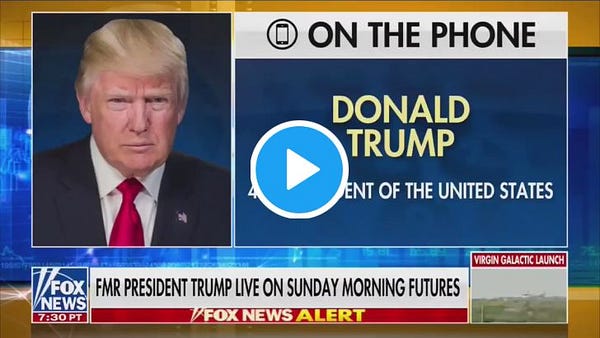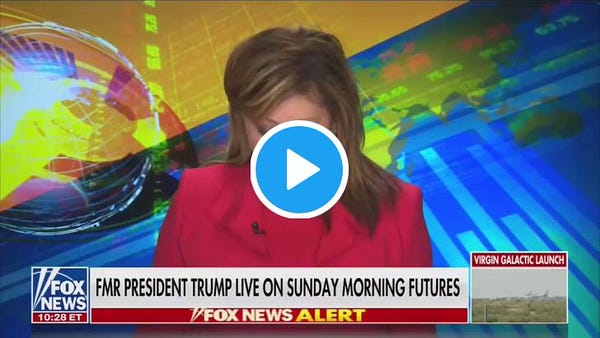Trump's January 6 Myth Is All About Revenge
By weaving a story about the innocence of political violence done in his name, the former president is energizing a movement of retribution.
Last Thursday, I noted that Donald Trump was now explicitly pushing a narrative about the January 6 riot that portrays the slain protester Ashli Babbitt as a martyr and the larger protest as the work of innocent people. On Sunday, speaking on Fox News on Sunday and at the annual CPAC conference, Trump returned to this storyline in even more hyperbolic terms.




The Dallas News reported on Trump’s CPAC speech:
“There were no guns whatsoever… and yet they have people still in jail,” Trump said. “It’s not right. And they’re military people, and they’re police officers, and they’re construction workers. And they’re … tremendous people.”
And he said, “Who shot Ashli Babbitt? ... Who is the person that shot [this] innocent, wonderful, incredible woman, a military woman, right in the head? And there’s no repercussions.”
She and other rioters tried to breech a barricaded door to the Speakers Lobby, a restricted area next to the House chamber. An officer shot her as she tried to climb through a broken section of the door.
Trump insinuated that the officer, not yet publicly identified, was “head of security for a certain high official, a Democrat . … It’s going to come out.”
Trump’s speech was filled with the usual farrago of innuendo, exaggeration, half-truths, and outright lies. He claimed that a million protestors came to Washington on January 6 on his behalf. Most estimates put the figure in the far more modest range of 50,000.
But fact-checking Trump, while necessary, is of limited utility. Factual correction does nothing to address the real purpose of Trump’s words, unleashing a maelstrom of anger and fantasy. Trump is offering his followers a myth. We need to be clear-eyed about what sort of political action is likely to spring from that myth.
The myth Trump is offering is one of revenge: he and his followers are the good guys (military, police, tremendous people), who were robbed in the election, then jailed and killed when they protested. Ashli Babbitt was a martyr and her death (at the behest, Trump suggests, of top Democrats) demands retribution.
From the standpoint of Trumpian propaganda, Babbitt is a perfect victim: a young white woman who was also a military veteran.
Trump’s brand of anti-systems politics has always been about recrimination, a desire to lash out against the various groups (foreigners, liberal elites, immigrants, Antifa, BLM) blamed for hurting Trump’s followers. But with the Babbitt story, Trump has something new: a compelling personal narrative that links his political fate with blood sacrifice. It’s a story to motivate the troops.
There’s a school of thought that believes Trump has given up on politics and is only speaking out as a way to continue fund-raising and to stay in the public eye. Perhaps. But we can’t ignore the possibility that Trump in fact still nurses hopes of returning to the White House. If he does, then the myth he’s currently forging is the perfect spark for a very dangerous political movement intent on vengeance.
Share and subscribe
If you liked this post, please share:
Or subscribe:




I have been seeing a lot of comparisons in the media I follow comparing Ashli Babbitt to Horst Wessel, but to your credit, you were first I encountered. Taking the analogy further, how did the Weimar govt battle propagandists from 1919 to 1933? By allowing it to spread to the point of discrediting actual journalists and "real news" as “Lügenpresse” or "lying press" until Hitler controlled the media before he controlled government. WaPo wrote about it ~5 years ago:
https://www.washingtonpost.com/news/worldviews/wp/2016/10/24/the-ugly-history-of-luegenpresse-a-nazi-slur-shouted-at-a-trump-rally/